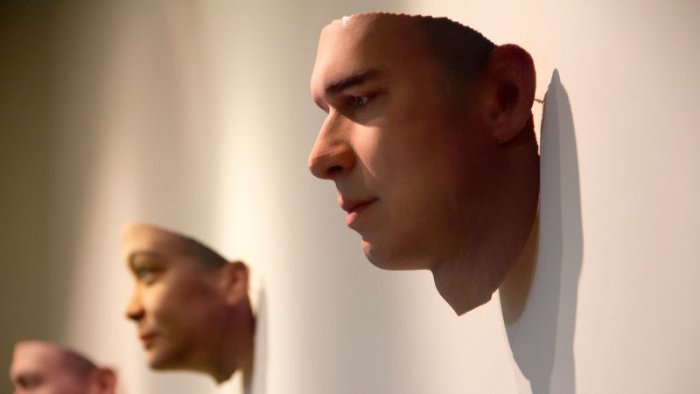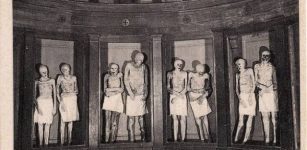DNA Can Reveal What You Look Like – Controversial Study Suggests
MessageToEagle.com – A controversial study suggests it’s possible to determine what a person looks like based on collected DNA.
If true, this would be very beneficial to the police and law enforcement.
If the police can use DNA evidence found at the scene of a crime, experts could determine what the suspect looks like in real life.
In “Stranger Visions,” the artist Heather Dewey-Hagborg imagined what people might look like based on DNA collected from refuse like cigarette butts. Image: Heather Dewey-Hagborg
In 2012, the artist Heather Dewey-Hagborg exhibited a work that predicted it’s possible extract DNA from discarded hairs, gum and cigarette butts and use it to predict what those anonymous strangers might look like.
Recently the biotech firm Human Longevity published a paper claiming that algorithms can use your genome to build a computer-generated image of your face.
The claims have been hotly contested and the paper has touched off an inter-science war.
Human Longevity has examined 1,061 people’s DNA. About 70 percent of the time, they found that their algorithm could correctly identify the right person from a lineup of 20 photographs of an ethnically-mixed group.
See also:
DNA Study: Almost All The Microbes Inside Our Bodies Are Unknown To Science – Stanford Study Says
Your DNA Influences Your Ability To Read A Person’s Mind – Large Cognitive Empathy Test Reveals
Mystery Of Our Coded DNA – Who Was The ‘Programmer’?
Using genomic data, they predicted face shape, eye color, hair color and even what a person’s voice might sound like. The paper noted the potentially huge legal and ethical implications of the work. If someone could really determine what you look like from a DNA sample, it would mean that no DNA test would ever be truly private. Not to mention that police could pick someone out of a lineup using little more than a drop of blood.
Image: Screenshot via Yaniv Erlich
Critics of the study have pointed out the results may be very inaccurate. Skeptics pointed out that it seemed like the method really relies on traits like race and sex to create pictures of average faces, something that could be done using far simpler DNA tests. Indeed, when used to pick a specific white European man out of a lineup of 20 other similar-looking men, it was right only 11 percent of the time.
Many are also concerned about ethical issues. Columbia scientist and chief scientific officer of the genealogy website MyHeritage.com Yaniv Erlich offered his own rebuttal, arguing that the paper used improper metrics and technique and “does not really identify anyone.” Erlich shot back that the prediction of his own face Venter tweeted looked more like Bradley Cooper.
The problem for now is that scientists haven’t quite figured how to read and translate all of that information. The science behind the technology will likely have to improve before you could really pick someone out of a crowd based on genes alone.
Whether these controversial methods will be applied in the future remains yet to be seen.
MessageToEagle.com
Expand for references











